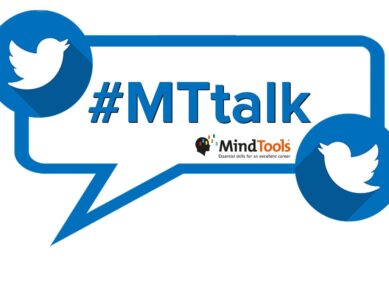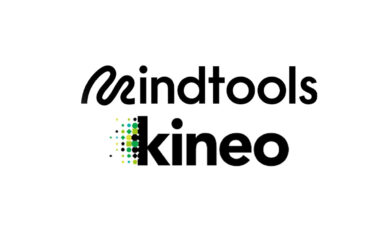“The most truly generous persons are those who give silently without hope of praise or reward.”
– Carol Ryrie Brink (1895-1981), American author
The Feel-Good Factor
I’m not a big fan of WhatsApp groups. I only belong to one group that consists of a few family members. We mainly use it for invites or to share important information.
It’s interesting to see our reactions, though, when we share jokes, video clips or memes. Not all of us enjoy the same type of jokes, so, while some of us will respond to a joke with laughing face emojis, others won’t respond at all.
But when someone shares a video or picture of an act of kindness, most of us will respond with, “Awww” (or something similarly fuzzy) and heart emojis. While we don’t all relate to the jokes and memes, seeing acts of kindness and generosity makes us all feel good, and we react to it.
That’s because humans are hardwired to be kind and generous, despite what we read in the newspapers and see on television. Even if we’re not actively involved in what we see, it triggers something in the brain that releases feel-good hormones.
I’ll confess: watching a movie that is based on people helping other people makes me cry (the good kind) almost without fail!
Generosity Is Good for You
If you’re doing something for someone so that you can bank a favor, that’s a transaction, not generosity. A generous act comes from the heart. Its only intent is to be kind to the recipient. You don’t expect anything in return, and you show humility and kindness.
In his book, Flourish, Dr Martin Seligman describes Dr Stephen Post, who conducted extensive research into the effects of generosity on the giver, as one of the “stars of positive psychology.”
Post found that being generous doesn’t only influence your happiness, health and success, but it can also increase your creativity and longevity. It’s good for your career, too, because it makes you feel more purposeful.
Generosity at Work
Generosity at work isn’t just about sharing your lunch or helping out a colleague when a deadline looms. It’s also about giving credit where it’s due, and about showing consideration toward others.
You can be generous with good manners, and by being sensitive to people’s boundaries. This gives them the gift of respect. Planning ahead so that you don’t inconvenience others, and being a good mentor, are also forms of generosity.
During our #MTtalk Twitter chat on Friday, we discussed generosity at work. Here are the questions we asked and some of the responses:
Q1. How do you understand “generosity” at work?
@KobusNeethInst: Generosity can come in many forms – being generous with your listening, sharing your ideas, helping others to learn, and being open to change.
@maat333: To be generous at work is to be respectful, to be considerate of the work of others, to listen objectively and equally to all, to provide the same elements of support and development. It is an attitude of collaboration and support.
@GladwynHR1: Helping others if they are stuck with ideas, advice, contacts, time, or just a cup of tea if you see that’s what they need.
Q2. What personal characteristics do generous people share?
We liked how our participants can finish one another’s sentences from different continents! As the saying goes, “Great minds think alike.”
@SaifuRizvi: Generous people talk nicely, share the credit, take responsibility, and educate people.
@carriemaslen: Generous people open doors (figuratively & literally) for others, trust others, believe & look for the best in others, and make time for others.
@MicheleDD_MT: They are confident & comfortable in their own skin. They know their capability & have high level of self-worth. People who lack confidence or feel that they are frauds often don’t share with others.
Q3. What types of workplace culture support and enable a lack of generosity, and how does it impact the workplace?
@Jikster2009: Environments that are personal target/reward-centric encourage a “dog eat dog” culture. Colleagues focus on achieving their own goals rather than supporting others to achieve theirs, especially if it’s of no value to them.
@MikeBarzacchini: Workplaces that penalize failure, put outcomes before people, don’t promote communication and sharing at all levels, forget any business is at its most basic is a relationship business – these types of workplaces are often barren of generosity.
Q4. How is cultivating a generous culture an advantage for organizations?
A culture of generosity allows people to work together for the good of the organization, saving both time and money.
@70mq: It allows for innovation, collaboration and always looking for ways to do something better.
@JKatzaman: A generous workplace culture solves problems before they occur. Personal relations encourage openness instead of hidden agendas.
@hibbikay: It helps in opening a window of opportunities for skilled individuals, learning and building culture for employees. It breeds a spirit of togetherness: helping one another to achieve common objectives and increase value for the organization as a whole.
Q5. How might generosity help you to be a better leader?
@thevijaymahajan: A leader who is generous with information, power and well-deserved compliments empowers employees, and creates an atmosphere of motivation.
@ManicSleetTeach: Modeling generosity can lead to change within a team culture. If the team feels the leader is being generous, then it will do more for the leader. Creates a culture of equal importance and values.
Q6. In what ways can a team become stronger when people are generous with each other?
One of our participants, @KrisGiere, made the comment that generosity is common in healthy, tight-knit communities, and that it isn’t accidental. There’s a correlation between generosity and a healthy community. Others echoed this sentiment:
@TheCraigKaye: It’s peer generosity that makes a team, otherwise it’s a group of individuals! The Marines drum into recruits that the first thing they must learn is to show humor with one another, as they feel peer support will be their most important ally.
@Ganesh_Sabari: A generous and closely knit team with complementary skills possesses the ability to kick-start a corporate entrepreneurial venture.
Q7. Have you ever seen generosity being taken advantage of? What happened, and what was the result?
Different perspectives make it clear that we don’t all experience being “taken advantage of” in the same way.
@SailorsBen: People can get tired of constant questions. I think respecting people’s limits are important. However, remember others are learning and don’t have your experience and resource familiarity.
And, sadly, many of you will probably relate to this situation:
@Midgie_MT: Yes, when someone worked longer hours to get caught up on the backlog of things and then it became the norm/expected to work those longer hours. When employees starting going back to their regular work hours/pattern, it was suggested that they were “slacking off.”
Q8. How do you maintain your boundaries, and ensure that your generosity isn’t abused?
@NicolaBlairHR: You need to tell people what those boundaries are, and what the consequences will be if they are not respected.
@harrisonia: We can maintain our boundaries to ensure that our generosity isn’t abused by listening twice as much as we talk, and meticulously noting who in the office happily shares credit.
Q9. Some people might find generosity patronizing or disempowering. How can you behave to really benefit the recipient?
Offer your help with humility and respect, and be graceful enough to step away if it’s declined. Also keep the following in mind:
@Yolande_MT: Be sensitive to cultural differences and historical positions regarding seniority, race and gender. Your intent might be good, but it can come across all wrong.
@sittingpretty61: Not everyone has fluid boundaries and appreciates kindness and generosity. One needs to observe and assess whether can the person take responsibility for their side of the street. If a person is devoid of empathy, then probably not.
Q10. How might you encourage more generosity, and be more generous in the workplace?
These participants reminded us of two important aspects of generosity:
@IAmTakingCharge: With generosity, there needs to be understanding by the receiver to avoid loss of trust. If we choose to do something good for someone, we must think of the outcome we want to achieve and not think about the reward we will get for doing it.
@BrainBlenderTec: By being contagiously positive, as happy people are more likely to be generous.
Thank you to everyone who took part in an entertaining and informative #MTtalk! To read all the tweets, take a look at the Storify version of the chat, here.
Coming Up
While discussing generosity at work, the idea of being generous with your knowledge surfaced a number of times. So, next time we’ll be discussing “Creating Learning Culture.” We’d like to know what would make learning at work more attractive for you. Click here to cast your vote.
Resources
In the meantime, here are some resources that will help you to learn more about generosity at work:
- Degrees of Giving
- What Are Your Values?
- How to Collaborate Successfully
- Random Acts of Kindness
- 10 Ideas for Random Acts of Kindness
- Managing Mutual Acceptance in Your Team
- Developing Charisma
- Avoiding Burnout
- The PERMA Model
- “Yes” to the Person, “No” the Task
Members of the Mind Tools Club and Corporate members can also read the full versions of these resources:
- How to Avoid Generosity Burnout
- The GIVE Model
- Yukl and Tracey’s Influencers
- Winning by Giving
- Working With Purpose
- 10 Ways to Make a Bad Day Better
- 8 Ways to Beat Loneliness in the Workplace
- Helping People Flourish at Work
- Flourish – Book Insight




